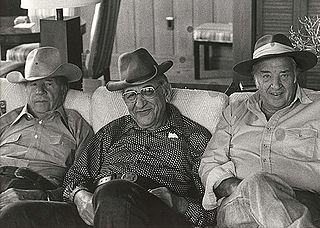A Quote by Max Fisher
Religious distinctions are deeply important for many of the problems in today's Middle East, particularly between Sunni and Shia Muslims in Syria and Iraq.
Related Quotes
And on this issue of the Shia in Iraq, I think there's been a certain amount of, frankly, Terry, a kind of pop sociology in America that, you know, somehow the Shia can't get along with the Sunni and the Shia in Iraq just want to establish some kind of Islamic fundamentalist regime. There's almost no evidence of that at all. Iraq's always been very secular.
If you look in the Muslim World right now, the Shia, the Sunni Muslims are standing at the brink of a pit of fire started by Western intervention and influence in pitting them against each other by exploiting their divisions. So the stage is set for war in that area of the world that would destroy that area as completely as what they are calling the failed state Libya making Syria, Afghanistan and Iraq failed states.
Sadly, a U.S. invasion of Iraq 'would threaten the whole stability of the Middle East' - or so Amr Moussa, secretary-general of the Arab League, told the BBC on Tuesday. Amr's talking points are so Sept. 10: It's supposed to destabilize the Middle East. The stability of the Middle East is unique in the non-democratic world and it's the lack of change in Iraq, Iran, Saudi Arabia, Syria, Egypt that's turned them into a fetid swamp of terrorist bottom-feeders.
Fourth, we will continue providing humanitarian assistance to innocent civilians who have been displaced by this terrorist organization. This includes Sunni and Shia Muslims who are at grave risk, as well as tens of thousands of Christians and other religious minorities. We cannot allow these communities to be driven from their ancient homelands.































